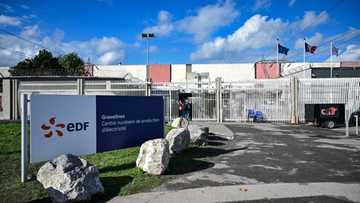Uniper rescue to cost Germany an extra 25 bn euros

Source: AFP
Troubled gas giant Uniper on Wednesday said the German government would need to spend an additional 25 billion euros under a planned nationalisation to stave off the firm's collapse in the wake of Russia's war in Ukraine.
The German government agreed in September to nationalise the debt-laden company after Moscow's closure of a key gas pipeline and sky-high energy prices left Uniper facing bankruptcy.
But the initial 8-billion-euro cash injection from the government "will not be sufficient to stabilise Uniper", the company said in a statement.
Another capital increase to the tune of 25 billion euros ($26 billion) will be needed to help cover "the enormous additional costs of the Russian gas cuts that continue to be primarily borne by Uniper", CEO Klaus-Dieter Maubach said.
The revised figure comes after Berlin scrapped a controversial plan to make German consumers pay a gas levy to help importers cope with rising prices, which would have covered some of Uniper's costs.
The government will finance the rescue out of a 200-billion-euro "special fund" designed to cushion the impact of the energy crisis on households and businesses.
PAY ATTENTION: Сheck out news that is picked exactly for YOU ➡️ find the “Recommended for you” block on the home page and enjoy!
Uniper said it would ask shareholders to formally approve the rescue deal on December 19.
As Germany's biggest gas importer, Uniper has been hit especially hard by the fallout from the Ukraine war, which forced it to buy gas at significantly higher prices on the open market.
It has reported a 40-billion-euro net loss for the first nine months of the year, one of the biggest losses in German corporate history.
Germany's government stepped in to save the company on fears that its collapse could endanger gas supplies and wreak havoc on Europe's biggest economy.
Germany, which was heavily reliant on Russian gas imports before the war, has raced to find alternative suppliers and fill reserves before the colder winter weather arrives.
The country announced last week that its gas storage facilities were 100 percent full.
PAY ATTENTION: Сheck out news that is picked exactly for YOU ➡️ find the “Recommended for you” block on the home page and enjoy!
Source: AFP



